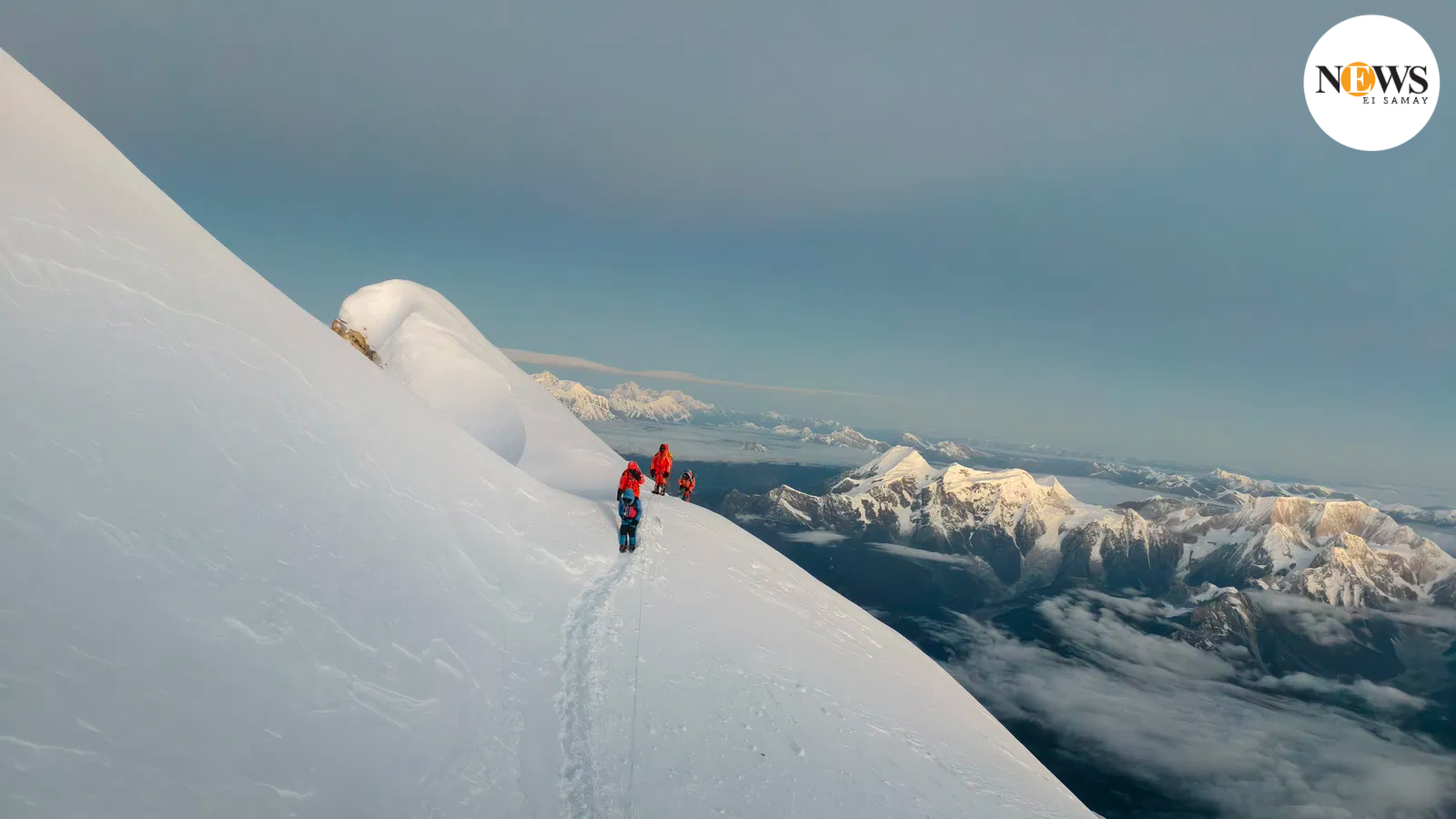For most people, mountaineering resembles an amazing photo, with a flag flapping at sunrise, snow glistening in the golden light, and a victorious climber grinning at the top. However, weeks of hardship, isolation, and choices that test the body and the soul are hidden behind that one idyllic moment.
Many believe the hardest part of climbing is the summit itself. Others imagine it as a sport driven by thrill and adrenaline. Yet, those who’ve stood above 8,000 meters in the thin air of the so-called “death zone”, know how many of these perceptions couldn’t be farther from reality.
That’s where Shuvam Chatterjee, aka Ronnie, steps in. Shuvam is an Indian mountaineer from West Bengal who's redefining conquest itself. Fresh off summiting Manaslu, he aims to become the youngest to scale all Seven Summits and Seven Volcanic Summits under his mission, Project Maverick and prove that every climb is a lesson in grit, humility, and self-mastery.
While sitting for an exclusive conversation with News EiSamay, he breaks down the 10 biggest myths about mountaineering and reveals what really happens when passion meets peril.
1. Is summiting really the hardest part of a climb, or is the real challenge something else?
“Usually summit pushes are lengthy, on that aspect, you can say it is hardest,” Ronnie says. “But the real challenge starts from Basecamp. You’re going to spend a month in a small tent with limited needs, and you cop-up with different people, you trust them with no previous links, you overcome your homesickness. That is the hardest thing. If you overcome this, your focus stays on Summit, which is no more a challenge.”
2. Do mountaineers climb just for thrill and adventure?
“Most of the mountaineers do. Rest do it to overcome themselves."
3. Do climbers go entirely alone, or is there a hidden support system behind every expedition?
“If you climb alone with all your personal equipment, that is called Alpinism,” he explains. “But in Nepal, especially on 8000-meter peaks, there is no ‘hidden’ support. It’s very clear that there is a sherpa team who guides you, there is one rope fixing team, who fixes rope to climb, kitchen team to cook. So, if you are climbing mountains, you’re also helping this community.”
4. Is mountaineering only about physical strength, or is the mind even more important?
“I believe climbing is all about 4 things. 25% Physical, 25% Mental, 25% Financial and 25% Luck. If all these 4 align, you’re climbing that mountain.”
5. Are mountains as glamorous and easy as the photos suggest?
“They are way more beautiful than the photos. No camera can capture the real beauty of a mountain.”
6. Can climbers eat, sleep, and function normally at extreme altitudes?
“Extreme altitude starts beyond 7000 meters. You still can eat, but the desire ends. If you’re talking about 8000 meters, which is actually death zone, you don’t feel anything except exhaustion. Usually, I prefer to intake semi-liquids.”
7. Is turning back before the summit really a failure?
“Actually, people think this way that’s why you will see so many casualties. Listening to the body is the main thing on the mountains. If you summit, but turn into a dead body, then that’s a failure even after summit. So, turning back due to health issue is never a failure. That’s a smart move!”
8. Do climbers ever feel completely safe, or is fear always part of the journey?
“For me, fear is never part of my journey. Can’t really say about other climbers, I don’t want to scare anyone.”
9. Do modern gear and technology make climbing easy or risk-free?
“Definitely. As the days are passing, we are introduced with new gears and technologies, and it is actually making climbing very easy. But learning to use the gears and tech is not easy, and you always need to practice. But whatever it is, if you’re trying to learn the new techniques, I always prefer to start with old school to know the whole process not only the new one.”
10. Is the summit the ultimate goal, or is there something deeper that climbers chase?
“The ultimate goal for me is to conquer myself. Being acrophobic, I never thought I’d stand on the top of world’s 8th highest peak and will shout Vande Mataram. Summit is a step for me to conquer the hidden me. In short, my ultimate goal is to make a true friendship with my worst nightmare, Acrophobia.”
Beyond the Summit
For Ronnie, every climb is more than a test of endurance, it’s a conversation between fear and focus, solitude and strength.
“Summits fade,” he says with quiet conviction. “What stays is who you become on the way up.”


